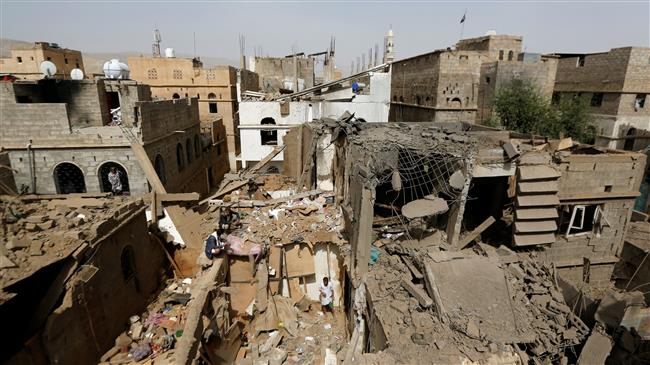
RNA - Saudi fighter jets conducted the aerial assault against al-Rabasah area in the al-Hawak district of the province, located 150 kilometers southwest of the capital Sana'a, on Wednesday evening, leaving seven people dead and four others injured, unnamed local sources told Yemen’s Arabic-language al-Masirah television network.
Later in the day, Yemeni army forces, supported by allied fighters from Popular Committees, fired a domestically-designed and -manufactured Qaher M-2 (Subduer M-2) ballistic missile at a position of Saudi-sponsored militiamen loyal to Yemen's former president Abd Rabbuh Mansur Hadi in Hudaydah, killing and injuring scores of the Saudi mercenaries.
Separately, Saudi warplanes targeted an area in the Kitaf wa al-Boqe'e district of the northwestern mountainous province of Sa’ada, though there were no immediate reports of casualties.
Saudi military aircraft also launched three airstrikes in the al-Buga district of the same Yemeni province, with no reports of fatalities and extent of damage caused available.
Additionally, many residential buildings suffered heavy damage when a salvo of projectiles fired by Saudi artillery units rained downed on an area in the Monabbih district of Sa’ada province.
According to Press TV, the Yemeni Ministry of Human Rights announced in a statement on March 25 that the Saudi-led war had left 600,000 civilians dead and injured since March 2015.
The United Nations says a record 22.2 million Yemenis are in need of food aid, including 8.4 million threatened by severe hunger.
A high-ranking UN aid official recently warned against the “catastrophic” living conditions in Yemen, stating that there was a growing risk of famine and cholera there.
“People's lives have continued unraveling. Conflict has escalated since November, driving an estimated 100,000 people from their homes,” John Ging, UN director of aid operations, told the UN Security Council on February 27.
847/940